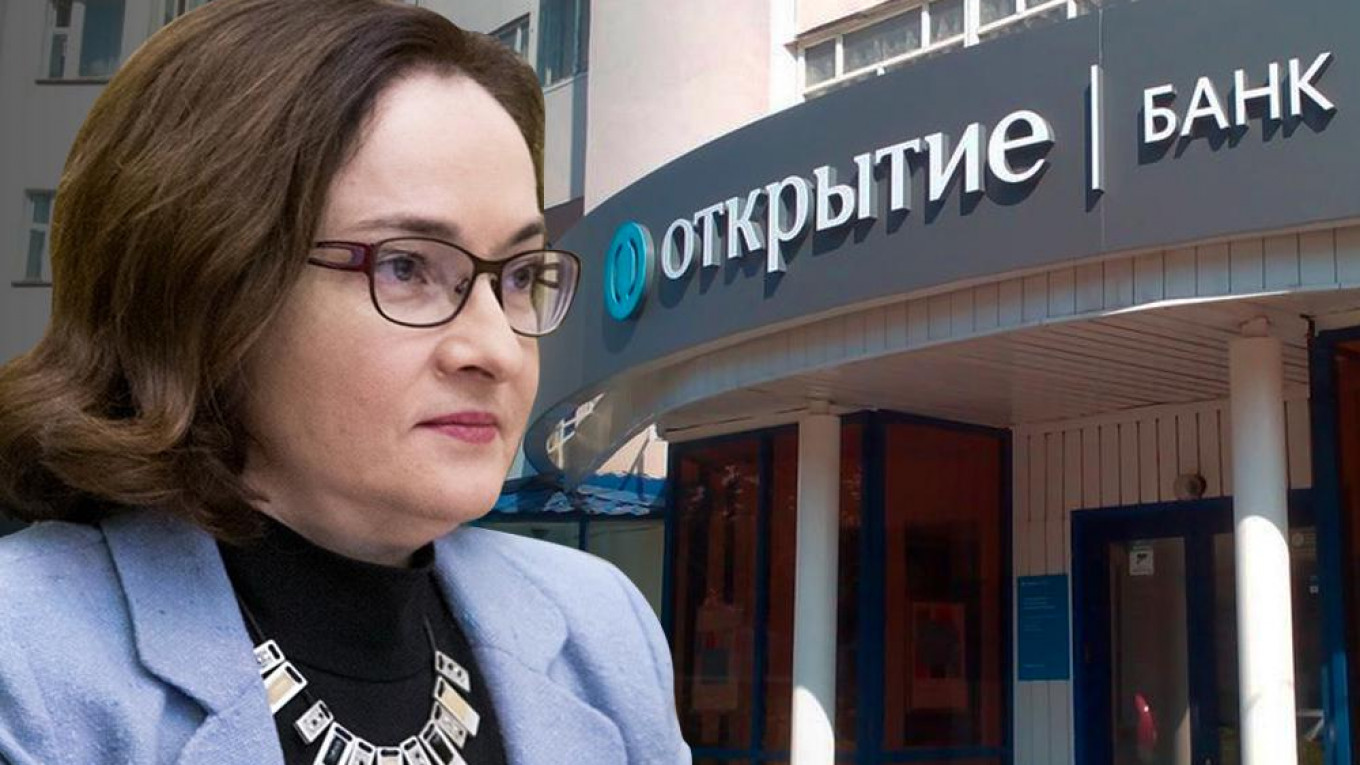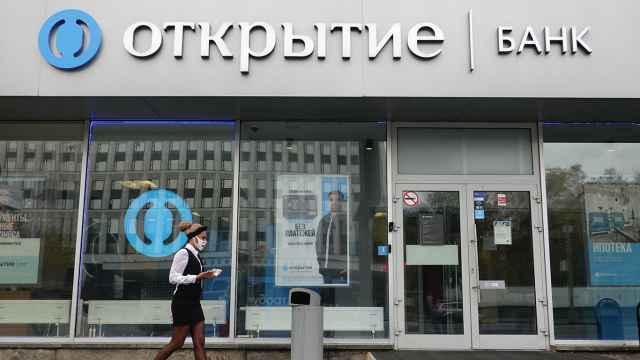If someone asked me to name the most powerful people in Russia’s economic sphere, I would certainly put Central Bank chief Elvira Nabiullina at the top of the list.
Since her appointment in 2013, she has become the most influential person in the country's economic establishment and she is probably the most consistent reformer in Russia.
Born in Ufa, Nabiullina worked closely with German Gref, the head of Russia’s biggest lender, Sberbank, and served as minister of economic development and as a member of Putin’s administration. As head of the Central Bank, she is now in charge of the only long-lasting economic experiment in modern Russia: Purging the banking system.
In about three years, she has stripped about 300 banks of their licenses.
The most stunning episode of this “cleansing offensive” occurred last month when the Central Bank took over 75 percent of the country’s largest private lender, Otkritie. According to the Central Bank, the restructuring of Otkritie — which the Bank will oversee — will require between 250 and 400 billion rubles ($3.3 - $6.5 billion).
How did Otkritie get here? After all, it had taken Otkritie’s largest shareholder Vadim Belyaev only three years to build the largest private bank in the country, an impressive achievement.
He bought out other financial organizations which had a weak market position or were on the edge of bankruptcy. He was helped by cheap state financing that he received through participation in the Central Bank’s financial rehabilitation program, aimed at improving the performance of banks struggling with their balance sheets.
Belyaev consolidated many of those struggling banks, making Otkritie the number one Russian bank by assets. But in the end, Otkritie came to the same dead end for exactly the same reasons. Like the smaller banks it had swallowed up, Otkritie now suffers from a lack of capital, low quality of assets and massive deposits withdrawal. Exactly the same reasons that prompted Nabiullina to close down hundreds of other banks.
The odds of survival, however, were in Otkritie’s favor for a number of reasons. First, the Russian Central Bank had named it a “systemically important” institution for the financial system. In other words, it was “too big to fail,” and the state would come to its rescue.
Secondly, “there are too many people involved whose interests are very important,” a government official recently told the media start-up the Bell. The official did not give names, but Otkritie’s shareholders include the state-owned VTB, Russia’s second largest bank, led by Andrei Kostin, as well as oligarch Alexander Mamut and IFD Capital owned by oil tycoon Leonid Fedun.
The troubles with Otkritie put Nabiullina in a tight spot. Applying her “financial rehabilitation” strategy in the traditional way, by withdrawing the bank’s license and allowing the collapse of the country’s largest private financial institution, would have shocked the markets.
Ahead of presidential elections in 2018, this would not have been the best idea. On top of that, she risked the dissatisfaction of influential people involved in Otkritie.
Nabiullina had only just won a hard fought battle with the siloviki — strongman officials with roots in the security services or military — for the bank Yugra. Yugra lost its license in July and went bankrupt. To repeat that battle with another powerful lobby group within a few weeks of Yugra would have been difficult.
If the Central Bank applied another method and appointed a larger organization, most likely VTB, to manage Otkritie, that would have meant the same nationalization but without the Central Bank’s control.
So under these difficult circumstances, Nabiullina chose to take over Otkritie. It is a decision that no one should blame her for. Neither “important people” or regular account holders can accuse her of subjectivity.
Nonetheless, many liberal economists have criticized the Central Bank. They say that the far-reaching purge of the banking system leads to an increase in the state’s share in the sector (which is currently up to 63 percent), reducing competition and encouraging the private sector to continue the irresponsible growth of its banking assets.
This is true, but unfortunately, the nationalization of Otkritie is nothing but an acceptance of the status quo, namely that most banks already depend on the state for their survival. Many Russian banks and companies use cheap and widely available state funding to build their businesses. As such, they live under the constant threat that the state will ask for its money back. This is fair play.
Based on Otkritie, Yugra and other stories, like the bankruptcy of the bank Peresvet, connected to the Russian Orthodox Church, Nabiullina has built up a reputation as a strong player with the political backing to help her achieve her strategic goals.
The major challenge she faces is how to apply her power in the future.
The entire Russian banking system suffers from the same pain points as Otkritie does, but total nationalization won’t solve the systemic problems. Because, as financial adviser Sergei Romanchuk notes sarcastically: “You achieve parity not just in terms of stakeholders but also in terms of assets. All hail a healthy competition between state banks!”
A Message from The Moscow Times:
Dear readers,
We are facing unprecedented challenges. Russia's Prosecutor General's Office has designated The Moscow Times as an "undesirable" organization, criminalizing our work and putting our staff at risk of prosecution. This follows our earlier unjust labeling as a "foreign agent."
These actions are direct attempts to silence independent journalism in Russia. The authorities claim our work "discredits the decisions of the Russian leadership." We see things differently: we strive to provide accurate, unbiased reporting on Russia.
We, the journalists of The Moscow Times, refuse to be silenced. But to continue our work, we need your help.
Your support, no matter how small, makes a world of difference. If you can, please support us monthly starting from just $2. It's quick to set up, and every contribution makes a significant impact.
By supporting The Moscow Times, you're defending open, independent journalism in the face of repression. Thank you for standing with us.
Remind me later.








